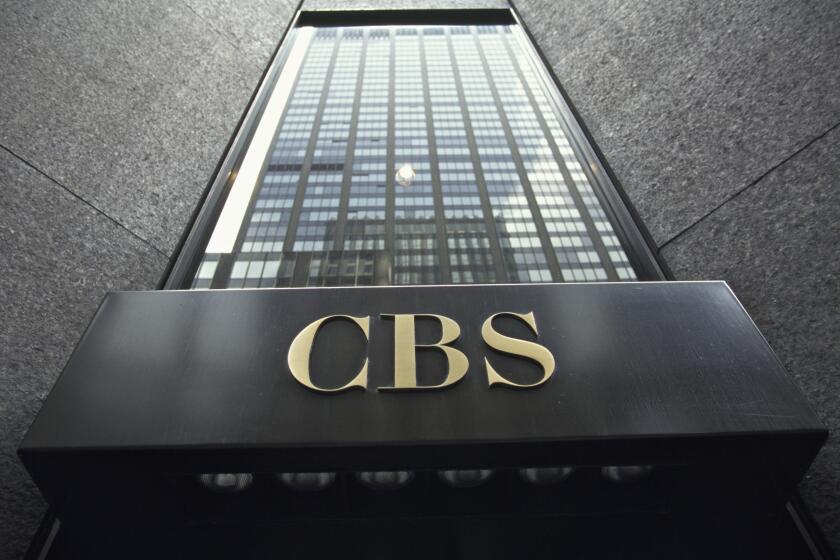Column: Hollywood loves making excuses for bullies. Here are some of the most damaging
- Share via
When my brother graduated college, my father offered him one piece of career advice:
Don’t be a jerk.
Well, actually he used another word, which begins win an “a,” refers to both a special kind of terrible person and a small but vital portion of human anatomy, and cannot be spelled out in this paper.
Coming as it did from my father, a learned, eloquent and in the truest sense deeply Christian man, this directive was notable in both its crudeness and its brevity. My brother has, as far as I know, always heeded it — indeed, it was the advice he offered to my son after he graduated. Watching the recent allegations against innumerable powerful men (along with a few women) and, in some cases, their professional freefall, I can’t help but think more people should follow this advice. In fact, the world might be a far better place if the phrase were included on every high school and college diploma and preface every HR guideline, management workshop and employment contract.
Especially in Hollywood.
CBS ousts two TV station executives after a Los Angeles Times investigation uncovered allegations of racist and abusive behavior.
Certainly ousted CBS executives Peter Dunn and David Friend would have benefited from the advice, ditto Joss Whedon and Scott Rudin, all the various industry executives referenced last year by #PayUpHollywood — an attempt by beleaguered assistants to combat the time-honored use and abuse of young people seeking a toehold in the entertainment industry — and of course the many men revealed to be perpetrators of sexual harassment and misconduct in recent years.
Unfortunately, for far too long, my father’s advice was seen by many as antithetical to success. Too often in this country, achievement is used to justify being an abusive jerk. Some even seem to believe achievement requires it: Powerful men and women are expected to have powerful personalities, and even in the 21st century power continues to be expressed in the form of sexual, racial, physical, verbal or emotional abuse.
Dunn and Friend lost their jobs after a Times investigation revealed a pattern of racism, sexism and bullying. Following accusations that he was abusive to the stars of “Justice League,” Whedon stepped away from HBO’s new series “The Nevers.” New revelations about Rudin in the Hollywood Reporter include him smashing one assistant’s hand with a computer monitor and throwing a bowl at another’s head.
They join a long list of bullies that began with Louis B. Mayer, equally famous for helping to launch the film industry and for using fear, threats, blackmail and sexual harassment to do it.
Hollywood’s history is littered with the casualties of a system that rewarded monstrous behavior, as is its present. Everyone certainly knew Harvey Weinstein was a tantrum-throwing, fear-inspiring, vendetta-fueled tyrant long before the ghastly details of his sexually predatory nature were made public. But hey, he produced a lot of good movies that won a bunch of awards and made many people loads of money, and you can’t make an omelet without cracking a few eggs, amirite?
Is it any wonder that the entertainment industry is so infatuated with films about gangsters, serial killers, crooked leaders and the moral lines that must be crossed in war and business? For years, Hollywood has spun the self-justifying, self-fulfilling mythology of the antihero — terrible men (and a few women) who still manage to seduce audiences with their “colorful” traits and ability to win at all costs. How could you not love Miranda Priestly or Tony Soprano? “I drink your milkshake” became a meme, a gif, a T-shirt not as a warning against the leeching nature of capitalism but because it was so cool.
Hollywood loves to send up its reputation for crazy and abusive behavior in film — “Swimming With Sharks,” “The Player” — and television — “Entourage,” “Flack” — but there is always self-congratulatory fondness in the satire. Look at how tough this business is! Look at how we make people suffer for their fame!
The idea that people who want to be part of the entertainment industry must first pay their dues by working assistant jobs that amount to nonstop hazing, or enduring on-set abuse from tyrannical directors or fellow stars, is still seen by many as not just an acceptable price of doing business but perfectly fair. You want to enter the dream factory? First you must endure its nightmares.
Last year the Hollywood Commission for Eliminating Harassment and Advancing Equality issued its first report, which began with the conclusion that “the entertainment industry is, unfortunately, a breeding ground for bullies who are typically highly ambitious, opportunistic, combative, powerful and competitive.”
Some of those adjectives — ambitious, say, or competitive — do not necessarily mean the same thing as abusive, just as not all shouting, swearing, long hours or professional demands constitute a “toxic environment.” Most everyone hates their boss at some time or another; that doesn’t mean every boss is hateful. Being a perfectionist and demanding a high level of work can be a good thing.
But for too long, words like “perfectionist,” “colorful,” “mercurial,” “eccentric” and “demanding” have been used as a smokescreen for bullies.
A “colorful” boss collects things like bobbleheads, snow globes and paperweights; a bully throws them, often directly at people, as Rudin reportedly has done on several occasions. (If someone you work for regularly throws things, contact HR; if they ever throw something at you, call the police.)
A “mercurial” boss may have sudden, highly dramatic reactions to things — dropping into chairs as if in a swoon when hearing very good or very bad news; doing a furious but silent about-face and stalking from the room when someone has missed a deadline; even shouting occasionally. But they do not regularly scream at people. Only bullies scream at people.
An “eccentric” boss may have bizarre rules about paper clips versus staples or a preferred seating arrangement at meetings — but only bullies call people names. Everyone who has ever been on a playground knows that kids who call other kids names are deeply insecure, possibly emotionally damaged and in need of intervention and counseling from caring adults. Adults who call other adults names are also no doubt deeply insecure and possibly emotionally damaged but that is not in any way your problem. The only name you should be called in a professional setting is your own.
Hollywood assistants have launched a push against low pay. With the hashtag #PayUpHollywood, they are tweeting horror stories. But will the industry notice?
Likewise, many self-identified perfectionists want what they want the way they want it, but only a bully has a temper tantrum over a food order. While it is absolutely not cool to hand your nut-allergic boss a salad festooned with walnuts or to continually forget that a certain co-worker is vegan, accidentally getting someone a latte with three shots of espresso instead of the requested four should not be considered a big deal. Or, frankly, worth mentioning beyond, you know, “thank you.”
In the entertainment industry, as in most industries, people will offer career advice and even aid. But only a bully will constantly remind you that he or she is capable of making or breaking your, or anyone’s, career. And while it is always tempting to believe someone who promises, “Kid, I’ll make you a star,” it’s important to remember that, even if true, a statement like that is really a declaration of narcissism, an attempt to claim all the power and all the glory in the universe forever and ever, amen.
The real problem is that Hollywood remains infatuated with the belief in the rainmaker; that there are only a few people (mostly men, mostly white) who are divinely blessed with the ability to “make” stars, hit films, prestigious series and, most important, many people lots of money. To keep them happy, the industry has been willing to excuse most any behavior. Including the trampling of thousands of people who, if given a chance, might have helped make a lot of good movies and television, might even have proved just as successful as the bully they fled from.
No matter what the mythology may say, bullies don’t winnow out the weak; they repel the reasonable, the people who are not willing to pay dues in the form of soul-sucking degradation.
Bullies are never interested in testing the strong; they are simply willing to do whatever it takes to get rid of the competition.
More to Read
The biggest entertainment stories
Get our big stories about Hollywood, film, television, music, arts, culture and more right in your inbox as soon as they publish.
You may occasionally receive promotional content from the Los Angeles Times.













